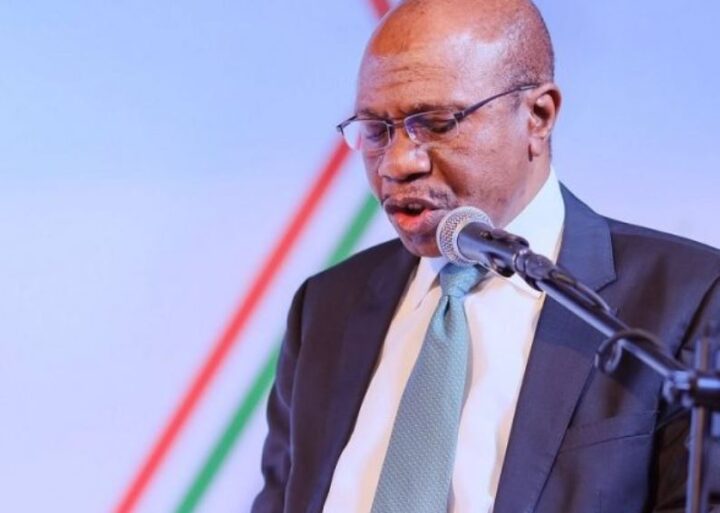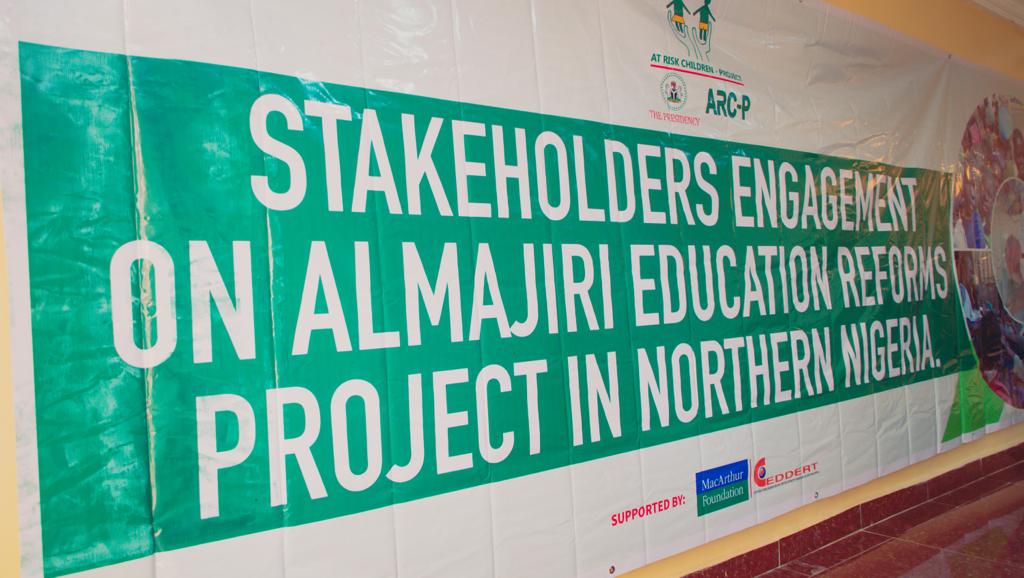BY ISMAEEL AHMED
Let me be clear from the onset that I am not an economist, and quite frankly I struggle to even understand it half the time. Especially the technical terms of it. As a Lawyer and a politician, I think the terms are mostly used by economists to confuse us while reeling out stats and trying to explain any given circumstance. As far as I, and many are concerned, we just want to know how much it costs to get basic things in the market today compared to yesterday or, what value my salary or wages has compared to other times and so on. And right now many people will argue it is not looking good.
What I know however, is that prior to 2015 Nigeria was earning a lot of petrodollars by selling crude at an average of 100 US dollars to a barrel consistently for many years. Waste, profligacy and corruption of monumental proportion set in. No wise investments was made in infrastructure, institutional edifices or human capital developments, in other words no sensible decisions were taken to secure the future of the country or to save for a rainy day.
The sharp drop in oil prices between 2014-2016 jolted us and our economy. Predictably, the drop led to exchange rate depreciation, heightened inflationary pressures, significant drop in our external reserves and ultimately, the recession which the country entered in Q2 of 2016.
Now, we all know that our administration came on the backbone of some fundamental campaign promises, chief of which is to help make life better for the people. None of these harsh economic realities and forecasts were going to make sense to the millions of those people that pitched their hopes on us. They were hurting. They needed help and we had to come through. With a combination of some policies both monetary and fiscal we were able to get out of the recession in 2017 according to the economists. But like I said, the question is what does that mean to a layman on the street other than abstract numbers?
Advertisement
What I can account for and testify clearly is that the CBN under Mr. Godwin Emefiele have done some things that have helped us through these tough times; they have stepped in with some serious interventions that helped cushion the effects of what would have otherwise been a catastrophic economic situation.
In delivering this mandate, Emefiele introduced several intervention programmes and schemes which are accessible through Participating Financial Institutions (PFIs) and to individuals directly. The interventions are designed by sector for optimal impact and ease of implementation.
These Interventions have significantly impacted on the lives of people and helped spur economic growth and continues to stimulate finance by providing access to long-term affordable credit to encourage investment in capital assets and de-risk key productive sectors of the economy for investment.
Advertisement
In Agriculture, through its Anchor Borrowers’ Programme (ABP) and the Commercial Agriculture Credit Scheme (CACS), the CBN has supported about 3.8 million smallholder farmers cultivating over 4.7 million hectares of farmland, and the establishment and running of 10 private sector integrated rice mills across the country respectively.
It has disbursed over 2 trillion Naira for Agriculture Interventions in the 6 geo- political zones through initiatives such as the National Youth Financing Initiative (NYFI) and the National Food Security Programme (NFSP). 39 percent and 61 percent of the funds were disbursed to the Southern and Northern region respectively.
In Manufacturing, through its Special Presidential Fertilizer Initiative (SPFI), the CBN has resuscitated 18 fertilizer blending plants in the country and improved the capacity utilization of other local fertilizer blending plants by 29%. The initiative contributed to the reduction in the price of fertilizer to an average of !5,500 per bag, thereby improving affordability.
In Energy and Infrastructure, the CBN has improved power supply services in the country by enabling the Electricity Distribution Companies (DisCos) to carry out projected Capex through issuance of Letter of Credits (LCs) for the purchase of over 704,928 meters through the Nigeria Electricity Market Stabilization Facility (NEMSF). The CBN has also helped to increase electricity generation to 5,195MW through the generation of 1,403.3MW of electricity, with 944.3MW new capacity added from financed power projects.
Advertisement
Towards the development of MSMEs, the CBN has supported over 30,000 MSMEs across Nigeria and created an estimated 110,000 jobs through the Agribusiness Small and Medium Enterprise Investment Scheme (AGSMEIS). It has also empowered over 7,000 youth entrepreneurs across the country under the Nigeria Youth Investment Fund (NYIF).
In the wake of the Covid19 pandemic, the Honourable Minister of Finance, Budget and National Planning, Hajiya Zainab Shamsuna Ahmed, sought to raise funding for the revised budget for 2020 in response to the economic shock, and charged the country’s financial institutions to fund the bulk of the plan’s financing, capped at 1.8 trillion naira.
On its part, the CBN embarked on series of interventions to cushion the effects of the Covid19 pandemic such as the provision of 50-billion-naira Targeted Credit Facility (TCF) stimulus package for households and SMEs that have been particularly hardly hit by the pandemic. Most importantly, the CBN ensured that salaries where being paid as at when due, regardless of the economic impact of the pandemic which led the country into another recession in Q3 of 2020. These interventions, based on the direct testimony of hundreds of people at the bottom of the pyramid, is the first time goverbment is directly looking their way and reaching out.
Subsequently, the CBN extended credit facilities of up to a 100 billion naira to stimulate economic activities locally within the healthcare sector, thereby building, diversifying and expanding the capacity of the Nigerian healthcare sector. It introduced interventions such as the Healthcare Sector Intervention Facility (HSIF) and the Healthcare Sector Research and Development Intervention (Grant) Scheme (HSRDIS), to support the heightened demand from medical and pharmaceutical industries following the pandemic.
Advertisement
CBN further went on to announce a 1.1 trillion-naira stimulus package to also support local manufacturing and boost import substitution to ensure that laboratories, researchers, and innovators work with global scientists to patent and produce vaccines.
Another strategy was the adjusting of the official exchange rate, which was at N307/$ before the outbreak of the pandemic, to an initial N361/$, in a bid to support crucial business operations such as operations in the pharmaceutical industry. It also began the harmonization of the exchange rates under the Import and Export window, as well as the Bureau De Change (BDC) and retail windows.
Advertisement
However, the ban on the BDC licenses and operations is one of the most controversial moves recently that has drawn a lot ire and many would say caused the high exchange rate of USD to the Naira in the black market. I was miffed by the decision as well in the beginning largely because as a people’s person, I saw it as an arbitrary and easy way out of responsibility for the CBN, but having spoken to so many people I came to realize that it was well thought out, even though I may have issues with the implementation.
Nowhere in the world does the Central Bank or Government banks supply foreign exchange to private companies to sell to individuals just so that it makes it easy for people to buy and hoard money. It doesn’t matter whether the difference is 1 Naira or 100 naira, it’s like CBN is just giving away free money to these companies.
Advertisement
The point is selling to BDC which are in their thousands is hard to regulate, makes it difficult to monitor, makes it highly susceptible to laundering, bribe giving or corruption in general and continue this dollarized economic nature. Perhaps, as unpopular as that decision was, we may have to encourage CBN to implement it in a manner that genuine businessmen will not suffer in the hands of commercial banks.
Similarly, the loud opposition to the CBN’s restriction on cryptocurrency operations in the country, considering its direct contravention of the existing law, was recently met with the development and launch of the Central Bank Digital Currency (eNaira). This is another great feat by Dr Emefiele and his team, as eNaira will help to deepen digital financial inclusion, thereby reducing poverty and boosting prosperity.
Advertisement
Tellingly, the CBN interventions and strategies have had significant impacts on the Nigerian economy. For the second time, it notably helped to bring the country out of a recession. Its contributions to the non-oil sector are commendable. In fact, the non-oil sector was reported to have been a major contributor to the country’s exit out of recession in Q1 of 2021.
I however wish to underscore the need for the Bank to focus more on its core mandate which is the overall control and administration of the monetary and financial sector policies. Agreed, the CBN delivers these interventions in pursuance to its development mandate as earlier stated, but this is not its core mandate.
More than ever, the country’s development banks must strive to deliver their core functions to support the country’s diversification agenda, for sustained economic growth and competitiveness in the Global Economy.
To the question I asked in the beginning: is it cheaper to buy things now or is our salaries and wages more valuable than it was? The answer is NO! That’s what I will call on the CBN, Ministry of Finance and the Economic team to focus on as that would be what my party and government will be judged by at the end. We gave them all the needed environment to thrive and we are now taking flak for it, the result must be worth it.
For now, the CBN and Emefiele are not the Enemies!!!
Ahmed, a Lawyer and a Politician. He is currently the Acting National Youth Leader of the APC and also the Senior Special Assistant to the President on Special Intervention. He writes from Abuja.
Views expressed by contributors are strictly personal and not of TheCable.






